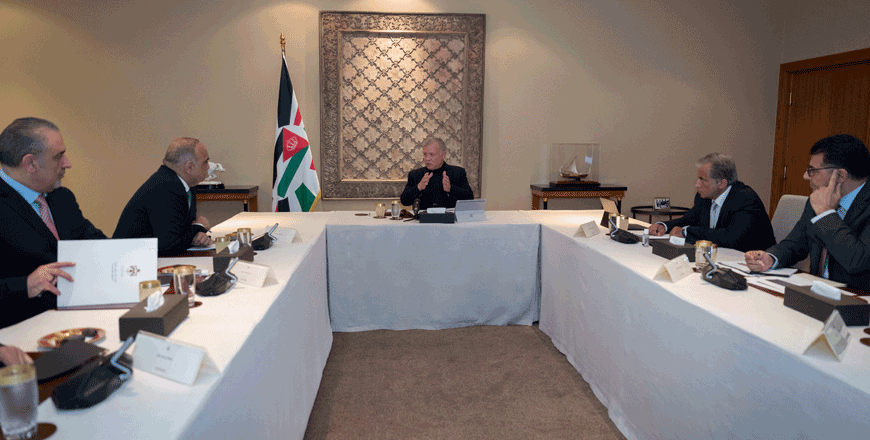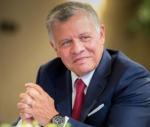You are here
PM attends launch of 2021-2030 National Strategy for Food Security
By JT - Aug 29,2022 - Last updated at Aug 29,2022

Prime Minister Bisher Al Khasawneh speaks during the launch ceremony of the 2021-2030 National Strategy for Food Security and its 2022-2024 executive plan (Petra photo)
AMMAN — Prime Minister Bisher Al Khasawneh on Monday attended the launch ceremony of the 2021-2030 National Strategy for Food Security and its 2022-2024 executive plan.
The strategy is the first of its kind related to food security in the Kingdom as an implementation of His Majesty King Abdullah's directives to mark 2021 as a year of food security, and to make Jordan a regional model for food security, the Jordan News Agency, Petra, reported.
Khasawneh said that the procedures the Kingdom has adopted in food security have contributed to Jordan’s progress on the global food security index; Jordan ranked 49th worldwide in 2021, compared with the 62nd place in 2020.
The prime minister said that Jordan was among the first countries to bring awareness to the issue and prioritise food security on the national, regional and international levels, adding that food security is a main and essential requirement of realising national security.
He added that the strategy comes at a time when the Kingdom, like the rest of the world, is suffering from several unprecedented crises, such as the hosting of refugees, the COVID-19 pandemic, climate change and the Russian-Ukrainian war.
In this regard, the premier noted that these crises have contributed to lowering the ability of both nations and households in ensuring food security and have exacerbated pre-existing economic, social and environmental challenges.
Khasawneh also praised stakeholders for their “distinguished achievement” of maintaining strategic reserves of staple commodities, mainly wheat and barley, for lapse of time that are considered among the highest in both the region and the world.
Agriculture Minister Khalid Hneifat stressed that the strategy enjoys the direct attention of King Abdullah, who contributed to the review of policies and plans for all economic sectors to be incorporated into the strategy and its executive plan.
Hneifat, who also heads the national committee for food security, discussed the impact of regional crises and the pandemic on the supply chain, as well as the increased cost of shipping as a result of higher oil prices, all of which caused Jordan to adapt to these changes through close partnership between the public and private sectors.
Food and Agriculture Organisation (FAO) Representative in Jordan Nabil Assaf highlighted the importance of the strategy, stressing the commitment of relevant UN agencies in realising the Sustainable Development Goals in Jordan, ensuring the availability of food at the national level and enhancing food security in light of the prevailing challenges.
World Food Programme Representative and Country Director in Jordan Alberto Mendes stressed the programme's support to this strategy, especially given that WFP is a key partner in achieving the strategy’s goals.
Related Articles
AMMAN — The European Bank for Reconstruction and Development (EBRD) is expected to approve a decision to provide Jordan with a $130 mil
AMMAN — The annual per capita food waste in Jordan is 101 kilogrammes, approximately 1.136 million tonnes of food squandered each year
AMMAN — His Majesty King Abdullah on Thursday urged stepping up efforts and cooperation in implementing the national food security strategy


















